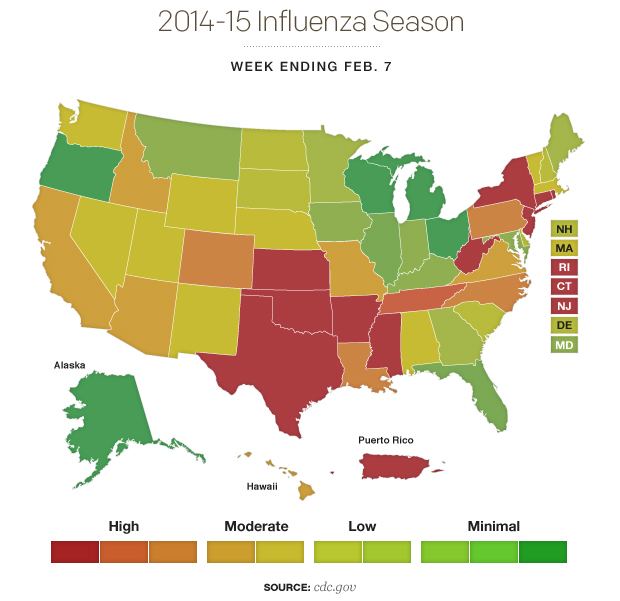Has this nasty flu season finally peaked?
Several months into a nasty flu season with one of the least effective vaccines in recent memory, federal health officials say the worst is finally over.
"There's a lot of flu season left, but it's clear we're decreasing and that flu season has peaked," said Dr. Michael Jhung of the Centers for Disease Control and Prevention.
The CDC released its latest data on Friday indicating that the epidemic has started to decline nationwide. Flu illnesses were at their highest levels around New Year's Day, Jhung said.
As of last week, there were still high levels of flu-related illness reported in 15 states, but that's down from 26 states the week before. Parts of the northeast, including New York and New Jersey, and the south-central states are still seeing a lot of cases.
The virus spreading across the nation this winter is a type that tends to hit the elderly especially hard. Seniors continue to be hospitalized for the flu at a historically high rate. About 217 out of every 100,000 people 65 and older have been hospitalized with flu-related illness. The previous record was 183 per 100,000 two years ago.
Young children are also at particular risk from the flu, and so far the virus has contributed to the deaths of 80 children this season. On average, about 100 children die from the flu each year. The CDC does not keep a count of adult flu deaths.
Among infectious diseases, flu is considered one of the nation's leading killers. CDC estimates 24,000 Americans die each flu season, on average.
Health officials have said since last fall that this season would be unusually severe. It turned out to be especially worrisome because the flu vaccine wasn't a good match for the strain that's been making most people sick. Health officials say it only turned out to be about 23 percent effective.
